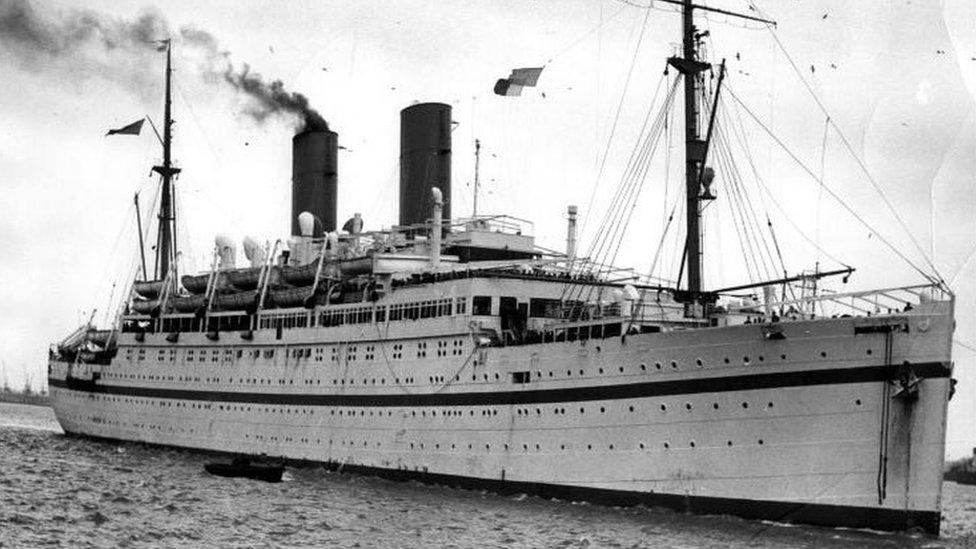Windrush: Man says education must not be limited to anniversary
- Published
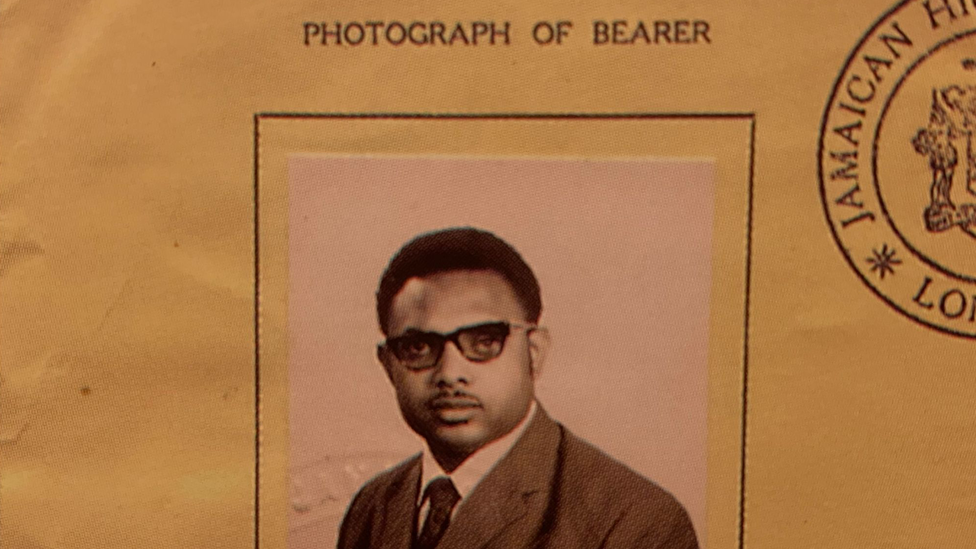
Roy Grant moved from Jamaica to the UK 62 years ago
Educating people about the lives of the Windrush generation should not just be limited to anniversaries, a man who emigrated has said.
Roy Grant moved from Jamaica to the UK 62 years ago, and is marking the 75th anniversary of HMT Empire Windrush arriving from the Caribbean in 1948.
Events will be held across the UK.
The Welsh government said it was the first UK nation to make it mandatory to teach black history.
The Windrush generation refers to the Caribbean people who moved to the UK between 1948 and 1971, when British immigration laws changed.
Roy was 19 when he left Jamaica for Birmingham, hoping to get an engineering apprenticeship and become a "fantastic production toolmaker engineer".
But the reality was very different.
"People did not want a black person within the engineering work," he said.
"People did not like the idea of being a black person living next door or in their house. In fact, you couldn't get a room to rent in those days."
Roy said the situation was "traumatic" and "very discriminative", saying he faced many racist incidents and was rejected from every job he applied for in his first three months in Birmingham.
"Those experiences were very much devastating to me as a young chap arriving into the country," he said.
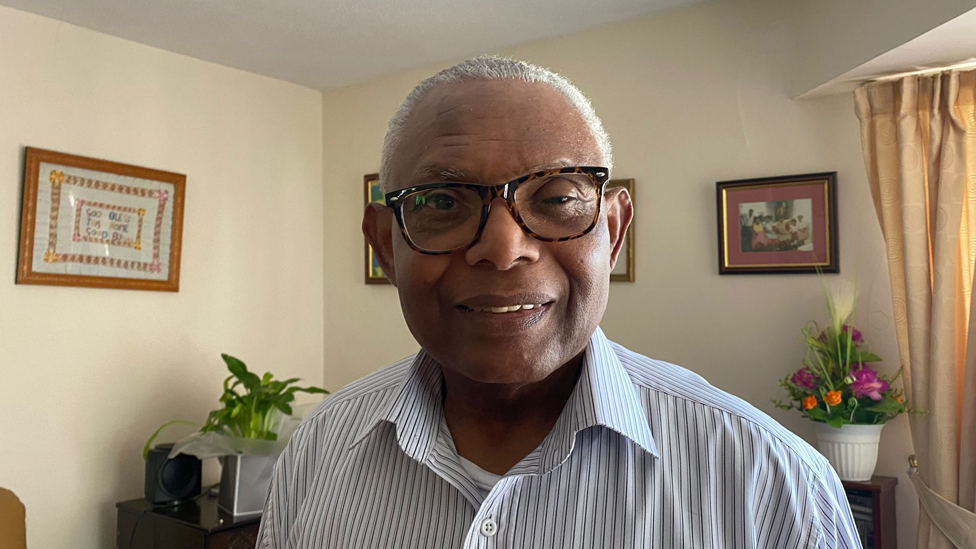
Roy Grant said his move to the UK was initially "traumatic" and "very discriminative",
Roy's fortunes changed though when his cousin, who was living in Wales, asked him to move there.
"I have to give thanks to Wales," he said. "I applied for an engineering job here, the owner looked at me and employed me."
Roy said people needed to be taught about the struggles and resilience of the Windrush generation all-year round, rather than just on anniversaries.
He said: "We have all this exposure now of the Windrush, and thank goodness recognition is being given.
"But what we need is more continuity. We need more of it in schools, we need more of it at home with a young people."
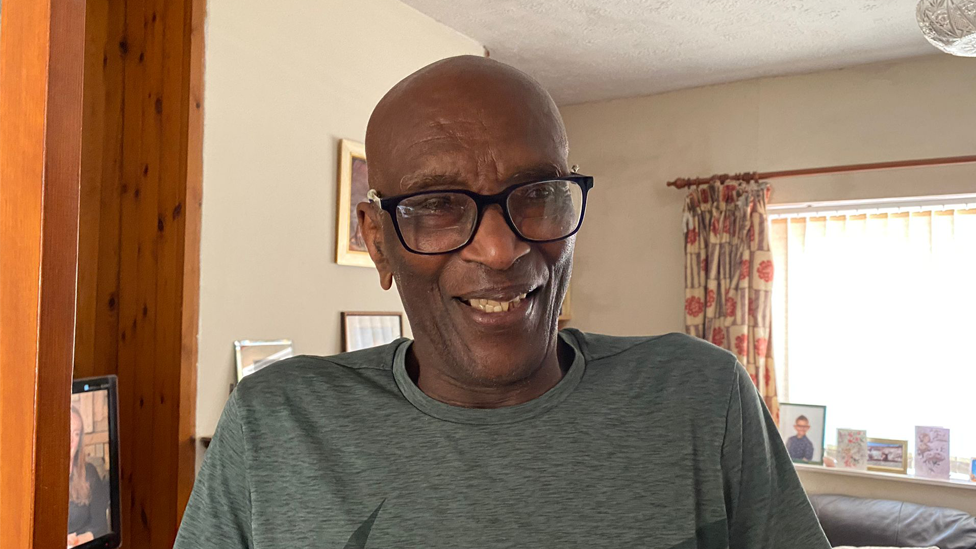
Growing up, Errol was taught Britain "was our mother country"
Errol Alexis, 87, moved to Cardiff, where his father was in the merchant navy, from St Vincent and the Grenadines - a former British colony - in 1957.
Growing up in St Vincent, Errol was taught Britain "was our mother country."
But despite his excitement to move there, he said he was "disappointed" on arrival.
"There wasn't any motherly love that you expect. In the job situation, and especially in housing situation," he said.
"After a big build up…. you face reality and it wasn't nice."
Errol and his family lived in Cardiff Docks, a racially diverse, close-knit community which "helped each other".
After doing a range of jobs in the city, Errol joined the military, which he served in for some years.
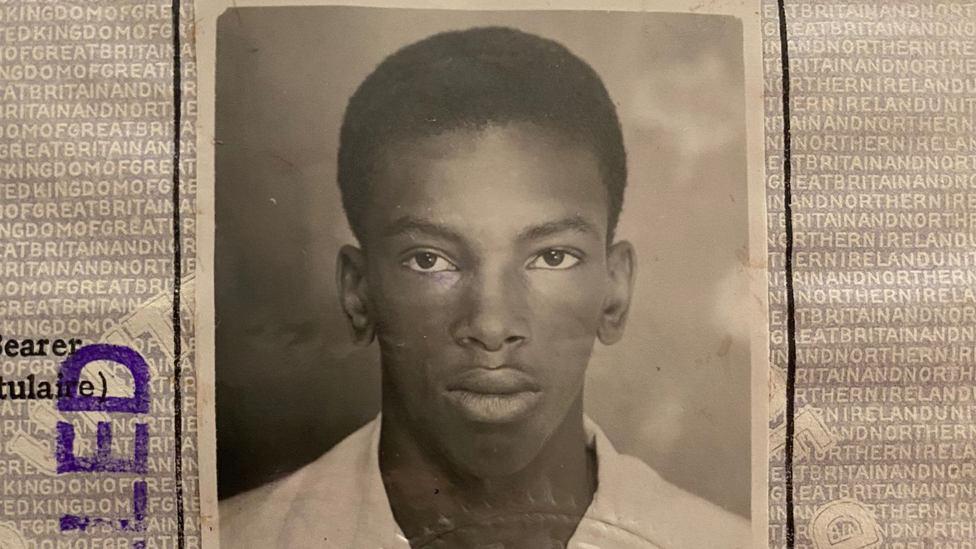
Errol lived in the Cardiff Docks after moving to the UK
He was married and had four children, but when he went to renew his passport after leaving the Army, he was told he "wasn't a British citizen anymore".
In 2018, it emerged the UK government had not properly recorded the details of people who had been granted permission to stay in the UK, with many wrongly deported.
"I went out of control. Years in the country, you're settled... and all of a sudden, they say 'you're not British any more, you could be deported'."
He said the experience and insecurity lasted for two years, for which he was unsure if he would be allowed to remain in Britain.
Errol was eventually given a British passport, and years later received some compensation for the impact the experience had on him.
After 66 years in Wales, Errol said he had "no regrets" about coming here despite the hardships he has faced.
"I'd do it again. I've learned so much. Remember, I'm from a tiny island you can put in north Wales, so I've learnt so much. I've had a good life. I'm part Welsh and part Windrush aren't I?"
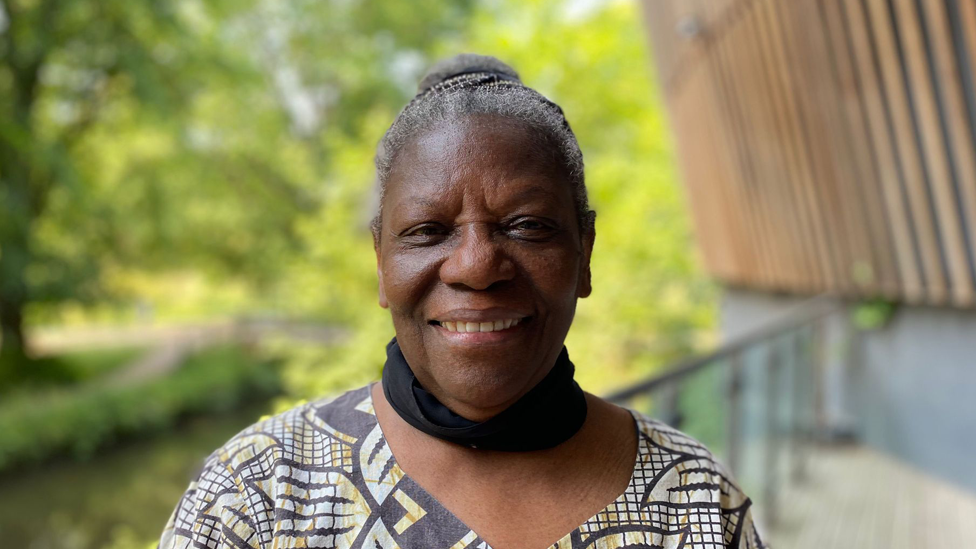
Roma Taylor said sailing solo from Antigua to Cardiff at 15 to join her mum and brother in Tiger Bay - the local name for the area of the city covering Butetown and the Docks was "so exciting".
"My dad asked the crew to look after me because I was coming over by myself. There was lots of ladies and children my age and so we all got together and you know their children played together. It was a lovely journey," the 79-year-old recalled.
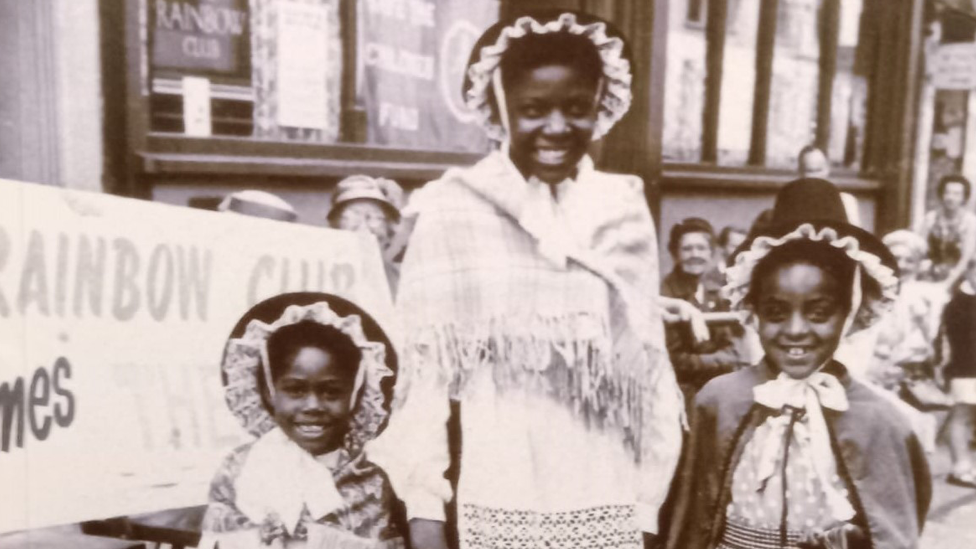
Roma (middle) with two girls dressed in traditional Welsh outfits
Roma said her community was multi-cultural and close-knit.
"We lived happy. One big family in Tiger Bay. You wouldn't believe it. All different people, but loving. I'm so glad my mum came to Cardiff."
Roma set up the The Windrush Cymru Elders group In 2017. A group of more 50 elders who come together to socialise and mark the contributions of the Windrush generation.
She said she was so excited to celebrate Windrush's 75th anniversary.
"We're free. We can enjoy what the Lord has blessed us with. After all these years, coming into Britain.
"Blood, sweat and tears, putting up with the racism."
- Published22 June 2023
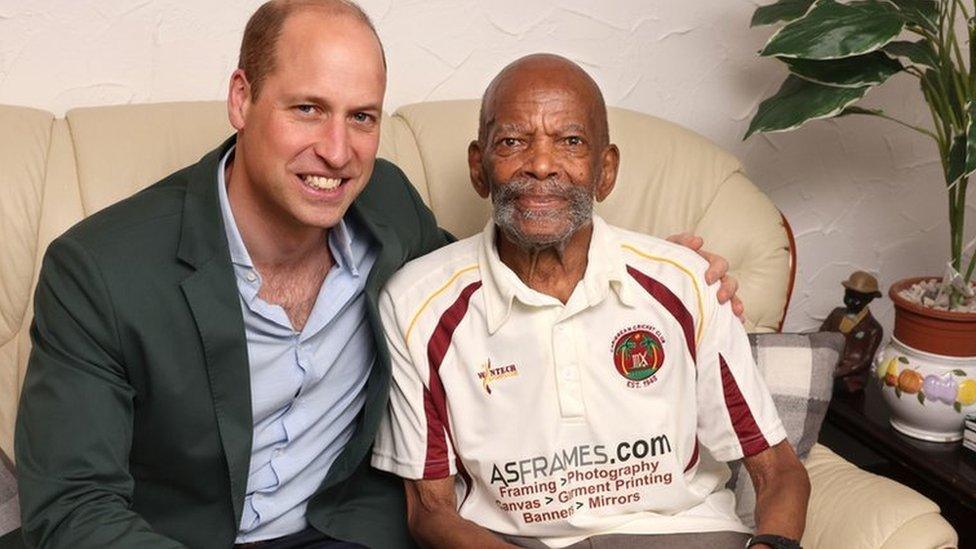
- Published19 June 2023

- Published21 June 2023
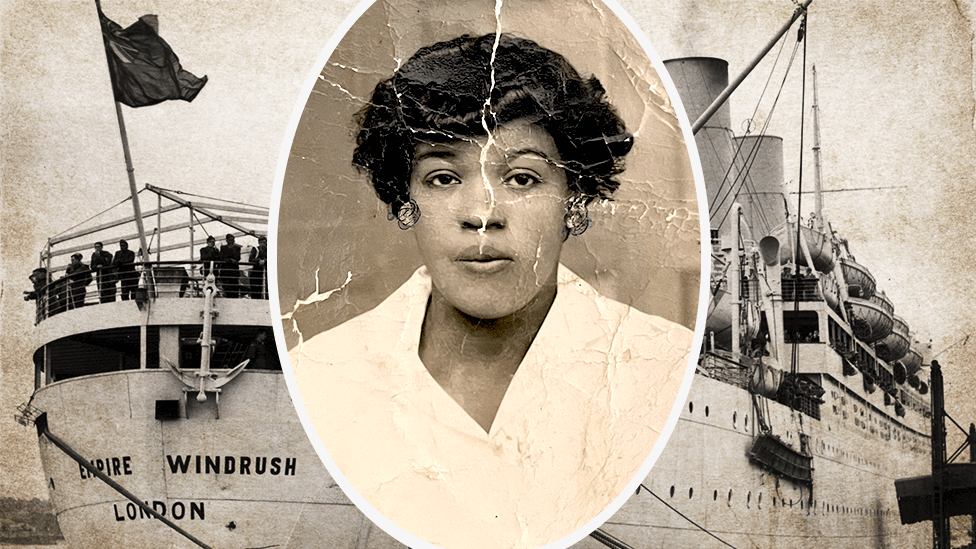
- Published21 June 2023
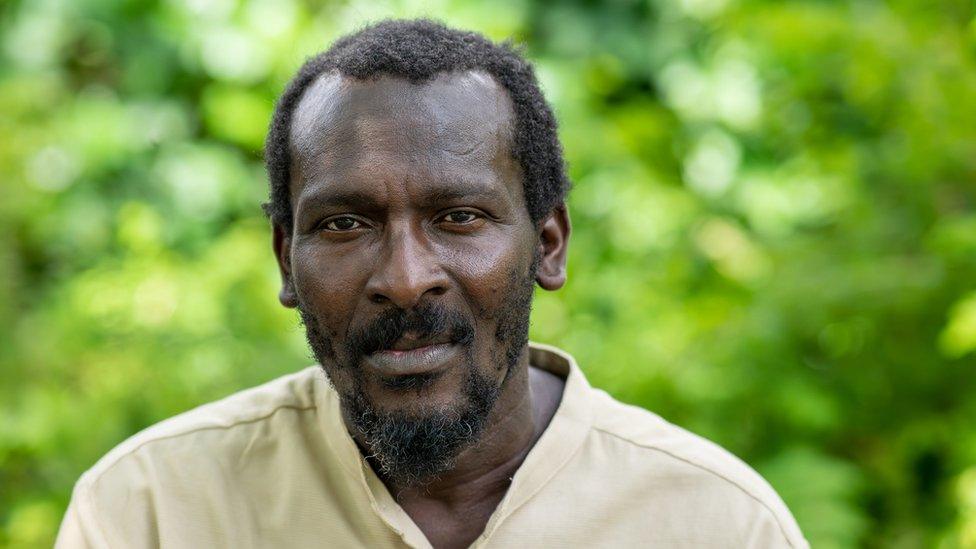
- Published31 March 2022
